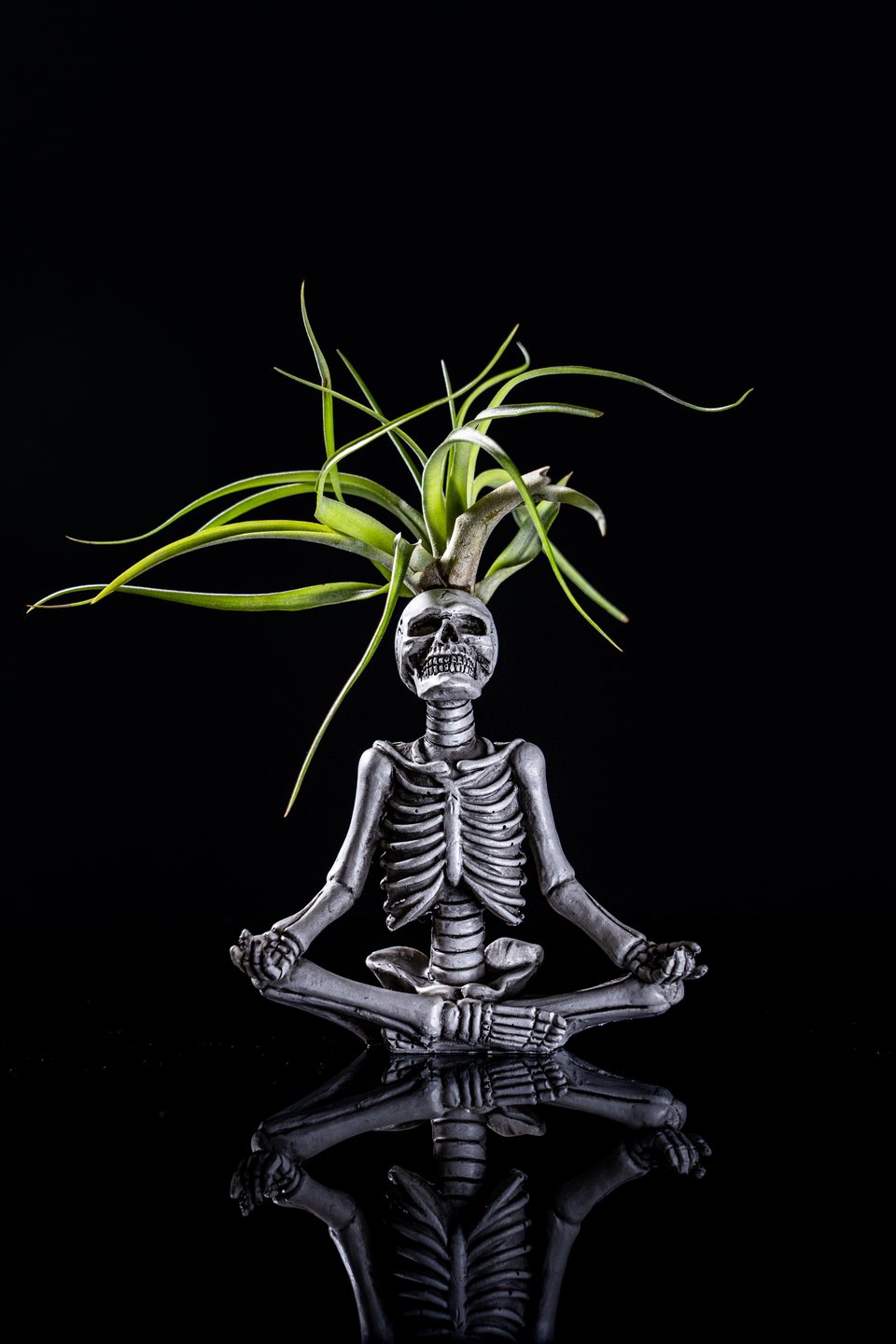Wallowing in Grief
Hello there, fellow wallowers,
I'm still experimenting with what this newsletter can and should be, so here's a mid-month installment that goes hard into reflective mode. My usual updates-oriented mailing will go out at the end of the month!
Content Notes: climate crisis, fundamentalist nonsense, grief.
Photo by Paul Cuoco on Unsplash

There's a moment in the novel I've been revising, when one character (a skull with a propensity for narration) makes a small observation about another:
“Bartleby grieved for the way things could have been,” Anne said.
It's a quiet moment, a small catalyst for the main character's self-reflection and assessment. But it stood out to me, on this round of revisions, because I, too, have been grieving for the way things could have been.
I suspect a lot of us have. All of us, maybe. And I just wanted to take a minute to acknowledge that. To sit with it. Or, wallow in it, rather.
Climate grief is real and ever-present, for one thing. The past several years have seemed exponentially worse, with fire seasons starting earlier and lasting longer, extreme weather, the horrible works. Jeff VanderMeer's Climate Fiction Won't Save Us really resonated with me, recently, in terms of treading the line between grief and hope and just finding a way to live amid it all.
But climate grief isn't the only caustic drip eroding all our edges. From COVID denial and casual governmental eugenics to white supremecist terrorism and anti-trans legislation to a personal (for me) resurgence of PTSD around the fundamentalist, evangelical home schooling movement (see Talia Lavin's Ministry of Violence series for a devastating primer) with the recent release of Amazon's Shiny Happy People, grief has wrapped a shroud of fog around me.
I am a mourner, and I am the one who I mourn.
Not just me, but all of us.
I mourn what we've gone through. I mourn who we might have become. I mourn the world we might have created. And, yes, in that mourning there is fierce celebration––we are here, we are alive, we will find and care for each other in spite of it all––but the grief is there, and sodden, and clinging.
It's thrown some things into sharp, ringing clarity for me. Cast new light on the stories I tell, and why I tell them.
Because the grief has shaped those, too. From my audio drama about learning better ways to haunt, to my in-progress werewolf novel about a woman who escaped an abusive fundamentalist upbringing and is still struggling to find community on the other side, to a historical fantasy about growing up in a cult and embracing your magic, to the novel about imposter syndrome and ableism in grad school I'm currently revising with my agent, grief is a silent thread, informing it all.
Grief, and resilience. Grief, and hope. Grief, and the bare-knuckled need to imagine there's something on the other side.
I recently listened to an episode of Publishing Rodeo in which Premee Mohamed discussed writing through burnout and the cognitive dissonance around the stories she wrote during that time.
Sunyi Dean, one of the hosts, noted:
It makes me wonder how the books would be different and how our careers would go differently if we weren’t writing under that kind of cataclysmic pressure.
Premee Mohamed responded with a story about writing a novel during that first pandemic year, concluding:
I don’t remember writing it and it ended up going up for a couple of awards later. But I just wanted to pull people aside and be like that book was not the book I would have written if my brain was working.
We write to process the grief, we write as a survival mechanism, we write to find connection. But the things we write become part of a feedback loop, for good and for ill, shaping the culture we live in.
What would we write, if our brains weren't grief-soaked and struggling? What would that version of the world even look like?
I don't know. I personally think that question has been behind lots of recent discourse about cozy genres, though I don't think cozy is the answer for me. I don't know what the answer is, for me. I am a tree, growing up around the obstacle of grief. I don't know if it's possible to reshape myself. But I've found catharsis, lately, in the not knowing.
There's this passage, at the end of Ursula Le Guin's "The Ones Who Walk Away from Omelas" that feels like directions and a rallying cry and an expression of solidarity, all at once:
They go on. They leave Omelas, they walk ahead into the darkness, and they do not come back. The place they go towards is a place even less imaginable to most of us than the city of happiness. I cannot describe it at all. It is possible that it does not exist. But they seem to know where they are going, the ones who walk away from Omelas.
I hold to that, when the grief wants to swallow me whole. I may not know where I'm going. That place may not even exist. But I think, if we keep walking and keep imagining, maybe, just maybe, we can create it together.
And it won't be like anything we can imagine, now.
Thanks for wallowing with me,
Courtney